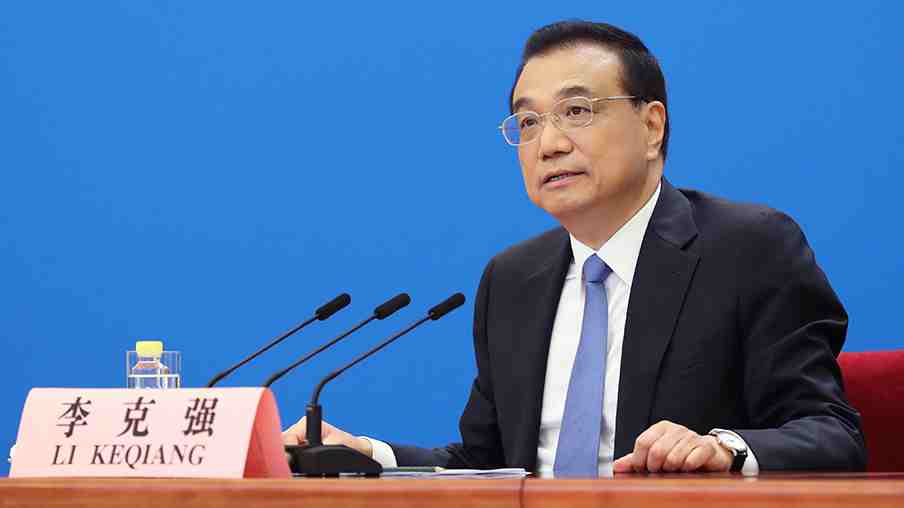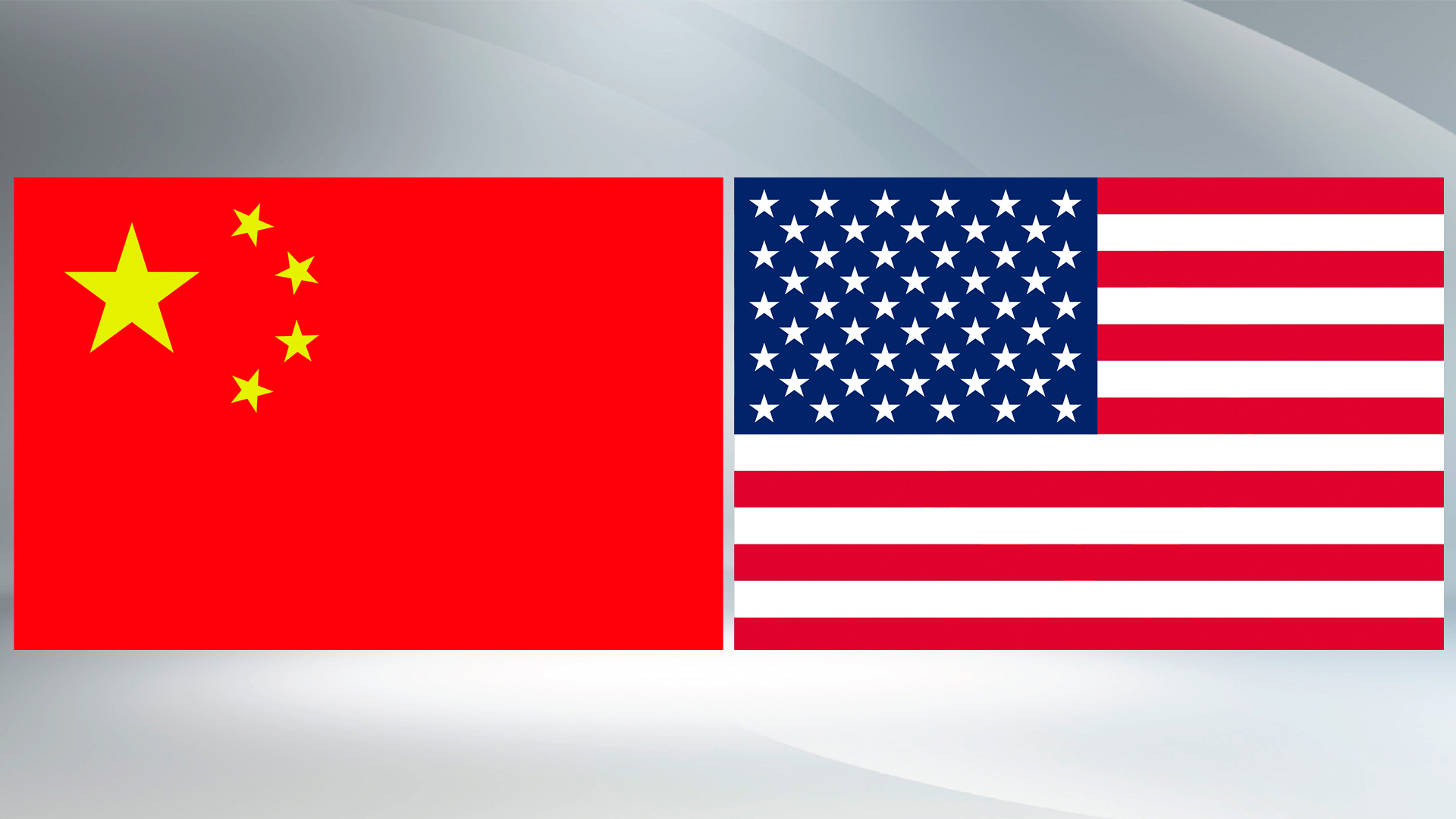
Chinese Premier Li Keqiang addresses the media after the conclusion of the third session of the 13th National People's Congress, Beijing, May 28, 2020. /Xinhua
Chinese Premier Li Keqiang addresses the media after the conclusion of the third session of the 13th National People's Congress, Beijing, May 28, 2020. /Xinhua
Chinese Premier Li Keqiang on Thursday said he was confident the measures China was taking to support jobs, livelihoods and businesses amid the economic difficulties caused by the COVID-19 pandemic would result in growth this year.
Speaking at a press conference in Beijing dominated by economic matters following the conclusion of the third session of the 13th National People's Congress (NPC), the Chinese premier also stressed the importance of understanding the origins of the coronavirus, warned against decoupling between China and U.S. and said national security legislation for the Hong Kong Special Administrative Region (HKSAR) would boost stability and prosperity.
Targeted economic stimulus
Li said it was impossible for China to be immune from the "heavy toll" taken on the global economy by COVID-19, adding that the decision not to put in place a 2020 GDP target in last week's government report, which was approved by the NPC earlier on Thursday, was based on "the realities on the ground."
The premier said he believed measures set out in the government work report relating to jobs, livelihoods and businesses will help achieve growth this year and keep China's economic fundamentals stable. "Employment matters most in people's lives," he added, and committed to funding to support businesses and professional training.
Seventy percent of the government funds will be directly used to support residents' income, which would boost consumption, energize the market, and benefit small- and medium-sized enterprises, Li said.
18:23

The premier said the plan set out in the work report was "forceful" and also stressed the importance of getting the timing and intensity of measures right, adding that the government would be wary of excessive release of liquidity in the market and guard against attempts at arbitrage.
"We will not flood the Chinese economy with liquidity, but the current unusual time does require extraordinary measures," he said. "Sufficient liquidity is important to economic development, but excessive liquidity will produce froth in the water.”
Li added that targeted moves would be central, and China was ready to take additional measures if the situation necessitated them.
COVID-19 origins
Asked about an independent inquiry into the origins of COVID-19, Li agreed that it was important to get a clear idea about the source of the coronavirus in order to better contain it as well as contribute to life and health around the world.
He noted that the virus caught all countries by surprise and everyone was learning more about it as the days passed, but stressed that much remained unknown and international cooperation was required.
The premier said the most powerful weapons against COVID-19 are vaccines, effective drugs and detection reagents, and added China was investing in research and development and working with other countries.
He said China had acted with openness, transparency and sense of responsibility since the outbreak began, and had shared information about it in a timely way.
09:32

Li also warned that while painstaking efforts had been taken to control the spread of the virus, "it has not come to a complete end in China and scientists have urged us to remain on high alert." He said a science-based approach will continue and that incidents of new infections must be reported quickly, adding "no cover-up will ever be allowed."
All countries face a "dual challenge" of containing the virus while reinvigorating the economy and returning to normal life, he added, acknowledging, "I'm afraid there is a certain level of conflict between these two goals … We will have to strike a delicate balance."
'Complex' U.S. relationship
Li acknowledged that there were "new problems and challenges" in the China-U.S. relationship, but stressed that there were many areas in which the countries could and should work together.
He said there is "extensive common interest between China and the U.S., both sides stand to gain from cooperation and lose from confrontation."
10:49

China had consistently rejected the "Cold War mentality," the premier added, warning decoupling would do no good for either country or the wider world.
The relationship is a complex and in recent decades there has been "growing cooperation and some bumps along the way," he said, but the countries must respect each other and embrace cooperation.
Hong Kong and Taiwan
National security legislation for HKSAR, approved by the NPC earlier on Thursday, "is designed for steady implementation of 'One Country, Two Systems' and Hong Kong's long term prosperity and stability," Li said.
The legislation, which consists of seven articles, is aimed at establishing and improving the legal system and enforcement mechanisms for HKSAR to safeguard national security.
The premier added that a "high degree of autonomy" would continue in HKSAR and the central government had "fully and faithfully" implemented "One Country, Two Systems," acted in strict accordance with the Constitution and the Basic Law and supported the HKSAR chief executive.
02:44

The Chinese mainland's policy towards Taiwan has remained consistent, Li also said, adding that it was ready for dialogue with any parties, groups or people to "promote the peaceful reunification of China."
"The 'Taiwan question' is China's internal affair," he added, stressing opposition to independence and external interference.
'Open attitude' to trans-Pacific pact
Li said China has an "open attitude" towards joining the Comprehensive and Progressive Agreement for Trans-Pacific Partnership (CPTPP), the 11-strong trade agreement signed in 2018.
He added that he continued to hope and believe the Regional Comprehensive Economic Pact (RCEP) would be signed by the end of the year, and that China, Japan and South Korea are also working together on free trade agreement development.
China will further expand cooperation with the rest of the world, Li added.
"It is impossible for any country to have achievements with its doors closed," the premier said. "China will not walk away from its commitments. Instead, we will further expand our cooperation with the rest of the world."
"If there are some rules in today's world that some are not happy about, we can all sit down and work things through in the quest to pursue mutual benefit."